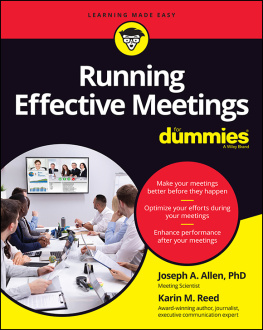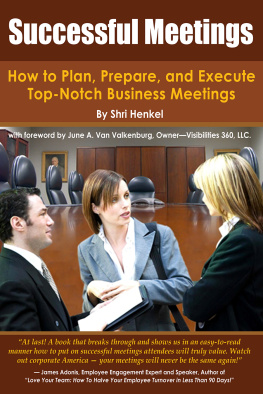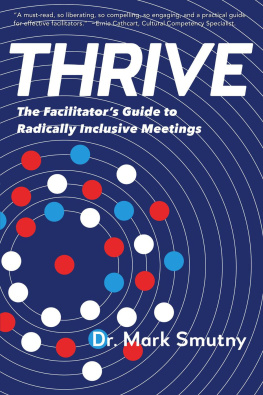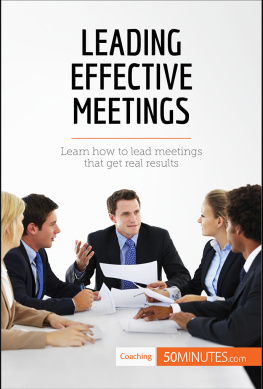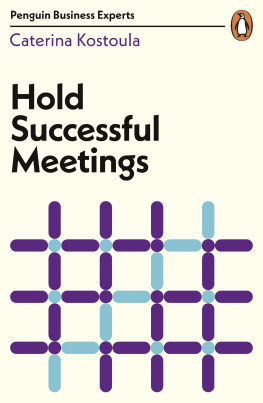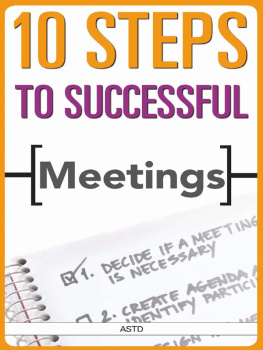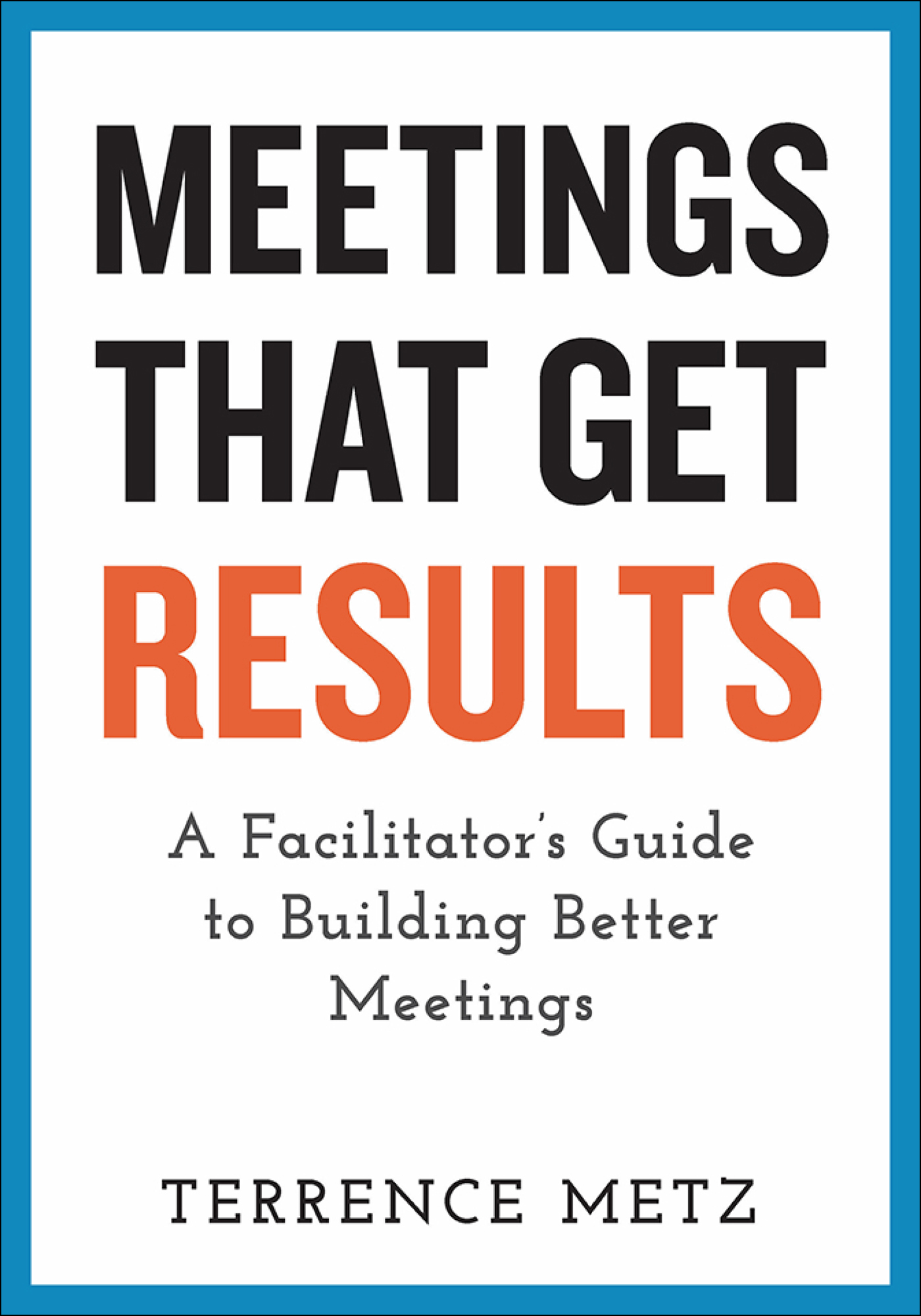Contents
Guide
Page List

Meetings That
Get Results

Meetings That Get Results
Copyright 2021 by Terrence Metz
All rights reserved. No part of this publication may be reproduced, distributed, or transmitted in any form or by any means, including photocopying, recording, or other electronic or mechanical methods, without the prior written permission of the publisher, except in the case of brief quotations embodied in critical reviews and certain other noncommercial uses permitted by copyright law. For permission requests, write to the publisher, addressed Attention: Permissions Coordinator, at the address below.

| Berrett-Koehler Publishers, Inc.
1333 Broadway, Suite 1000
Oakland, CA 94612-1921
Tel: (510) 817-2277, Fax: (510) 817-2278
www.bkconnection.com |
Ordering information for print editions
Quantity sales. Special discounts are available on quantity purchases by corporations, associations, and others. For details, contact the Special Sales Department at the Berrett-Koehler address above.
Individual sales. Berrett-Koehler publications are available through most bookstores. They can also be ordered directly from Berrett-Koehler: Tel: (800) 929-2929; Fax: (802) 864-7626; www.bkconnection.com
Orders for college textbook/course adoption use. Please contact Berrett-Koehler: Tel: (800) 929-2929; Fax: (802) 864-7626.
Distributed to the U.S. trade and internationally by Penguin Random House Publisher Services.
Berrett-Koehler and the BK logo are registered trademarks of Berrett-Koehler Publishers, Inc.
First Edition
Paperback print edition ISBN 978-1-5230-9315-1
PDF e-book ISBN 978-1-5230-9316-8
IDPF e-book ISBN 978-1-5230-9317-5
Digital audio ISBN 978-1-5230-9318-2
2021-1
Book producer: Westchester Publishing Services
Cover designer: Howie Severson

This book is dedicated to several important family members:
To my best friend, partner, and wife, LoriJo, whose expertise remains hidden
on every page. She is all about doing the next right thing. LoriJo walks
her talk, spending most of her time serving others and not herself. She is
clear thinking, exceptionally bright, highly practical, and a truly spiritual
humanitarianon top of being beautiful, inside and out. It
takes a special kind of person, someone who loves life,
to look forward to Monday mornings.
To my daughter, the classy professional Georgia Jean, for her edits,
keen observations, constant encouragement, and unconditional love.
To my sedulous son, Joshua Cincinnati, for expanding our
loving family with the addition of our vivacious daughter-in-law,
Katie; and to both of them for bringing Michael Thomas,
our resolute grandchild, into this existence.
Finally, to Henry, our 16-year-old cockapoo, for his reminders, as regular as
clockwork, that it is time to eat.
Contents

Foreword

In the course of our lives, we should deeply reflect on the sheer amount of time we spend in meetings. A majority of meetings in business are a critical mechanism for generative conversations to clarify the why, what, who, how, and when around producing a coherent shared understanding of the work at hand that needs to be executed. However, meetings are also a gateway to building trusted relationships and the magical world of tapping greater insights and knowledge than we could access by ourselves.
In the world we see now emerging in 2020 and beyond, meetings will become ever more frequent, virtual, and critical as the rate of change continues to accelerate and we have shorter prediction windows with more volatility and unexpected outcomes. In short, we are now witnessing an existential shift in the process of planning and problem solving that will require many more working professionals to master meeting management skills, both virtually and face-to-face, to be far more effective.
In this book, Terrence Metz lays out an integrated practicum that is both useful and intentional, to build better meeting outcomes and establish viable skills for every leader of groups, large or small. He does so by elevating the key competencies of facilitation as the lever for experiencing meetings as a value-creating human experience that also leaves the participants confident in their contributions as well as the outcome of their conversations.
Fifteen years ago, I introduced Terrences set of facilitation practices to a group of highly experienced project managers who were also instructors in the Stanford University Advanced Project Management Program. The conversion time for upgrading their meeting skills was very short, but having access to a set of easy-to-use meeting tools to plan and facilitate workshops built a cohort of very confident trainers and facilitators who were called upon consistently for facilitating very complex and strategic program planning meetings.
Based on many of the skills and tools now available to you in this book, my own practice of meeting facilitation was forever changed, because my own confidence and effectiveness became very evident. And, even today, when I reflect on ways I could do better and make more impact, I am always curious about how I could have made my meetings and client workshops more powerful. I am very appreciative that Terrence has taken the time to get this knowledge codified to share with the whole world at a time of major transformation. As many have said, every leader is only as good as the toolbox they know how to use, so this book is a timely must-have.
Enjoy the read and the reflections!
William Malek
Senior Director
Southeast Asia Innovation Management Research Center
Introduction

Launching
LETS GET STARTED
Theres nothing more frustrating than an unproductive meetingexcept one that leads to another unproductive meeting. This book is dedicated to the millions of people right now who are leading meetings without any training in facilitation or meeting design. Within the books pages are solutions to ensure that your meetings produce clear and actionable results. I show you how to run meetings that are profitable and productiveand that ultimately lead to fewer meetings.
In addition to basic information-exchange meetings (such as staff meetings and board meetings), I focus on three important forms of frequently challenging meetings:
- Decision-makingfocusing on prioritization and ranking
- Planningthat is, consensual agreement and shared ownership (


